detail profile sivaji ganesan
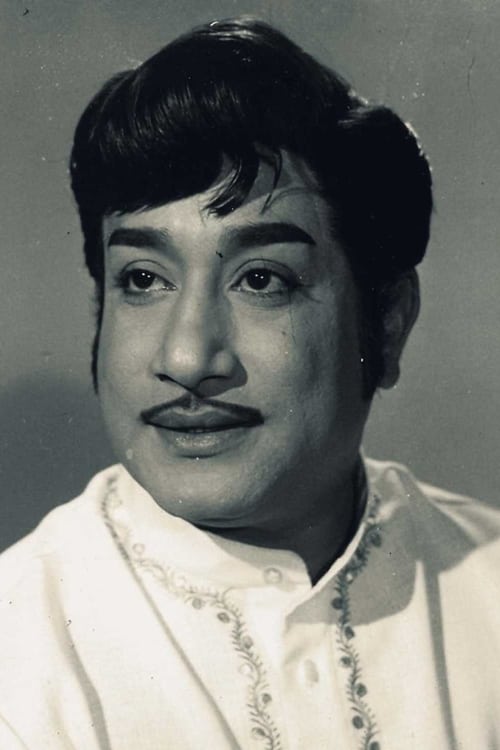
Sivaji Ganesan
சிவாஜி கணேசன்
atau dikenal sebagai
Riwayat Hidup
Viluppuram Chinnaiahpillai Ganesan Manrayar, commonly known by his stage name Sivaji Ganesan, was an Indian stage and film actor active during the latter half of the 20th century.
Well known for his versatility and acting skills with numerous roles depicted on screen, he remains one of the most respected stage and film actors in the history of Indian entertainment, with a career spanning close to five decades and nearly 300 films in Tamil, Telugu, Kannada, Malayalam and Hindi to his credit.
Arguably the preeminent leading man during the "Golden Age" of Tamil cinema, Ganesan was the first Indian film actor to win a "Best Actor" award at an international film festival, the Afro-Asian Film Festival held in Cairo, Egypt in 1960.
He was also the first Indian actor to be made a Chevalier of the Ordre des Arts et des Lettres.
He won the President's Award for more than 12 times, and was later conferred the highest and the most prestigious Dadasaheb Phalke Award for his contribution to Indian cinema in 1997.
An iconic figure in Tamil pop culture, his work has continued to enjoy an enduring, far-reaching influence in Tamil society in general.
Info Pribadi
Peran Yang Di Mainkan Sivaji Ganesan
 Padayappa a mechanical engineer whose father...
Padayappa a mechanical engineer whose father...Padayappa 1999
Padayappa, a mechanical engineer whose father gives up his property to his foster brother, and then dies of shock soon after. Neelambari initially loves Padayappa, but plans to humiliate him after his family humiliates her father. The rest of the plot deals with Padayappa overcoming all the obstacles placed by Neelambari.
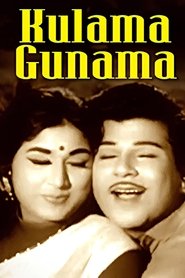 Chinnathambi is a wellrespected pillar of...
Chinnathambi is a wellrespected pillar of...Kulama Gunama 1971
Chinnathambi is a well-respected pillar of his village, dedicating his life to public welfare—but his devotion to duty comes at the cost of time with his wife, Seetha, who longs for a child. His younger brother Raja falls in love with Lalitha, the daughter of a corrupt shopkeeper who profits from exploiting the villagers. When Chinnathambi opens a fair-price cooperative store, tensions rise—and Lalitha’s father seizes the opportunity to drive a wedge between the brothers. As family bonds are tested by love, rivalry, and personal sacrifice, the women of the household stand at the heart of reconciliation. But when a twist of fate turns joy into sorrow, hidden truths and quiet acts of love begin to shape the future of both couples.
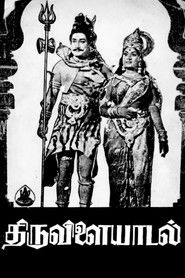 The Hindu god Shiva gives a...
The Hindu god Shiva gives a...Thiruvilayadal 1965
The Hindu god Shiva gives a sacred mango fruit, brought by the sage Narada, to his elder son Vinayaka as a prize for outsmarting his younger brother Muruga in a competition. Angry with his father, Muruga leaves home for Palani. He meets Avvaiyar, one of his devotees, along the way. Despite her attempts to convince Muruga to return to Mount Kailash, he remains adamant about his decision to leave his family. His mother, the goddess Parvati, arrives there and tells the stories of four of Shiva's divine games to calm Muruga.
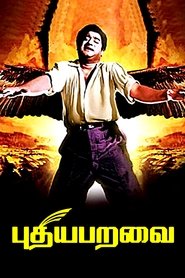 Gopal a rich widower falls in...
Gopal a rich widower falls in...Puthiya Paravai 1964
Gopal, a rich widower, falls in love with Latha. As they are getting prepared to marry, Gopal's presumed-dead wife, Chitra arrives.
 Sivaji Ganesan plays the role of...
Sivaji Ganesan plays the role of...Thangamalai Ragasiyam 1957
Sivaji Ganesan plays the role of a prince who is separated from his parents by his father's foe at a very young age. He grew up as a ferocious and vicious cavemen. Then he meets Jamuna, who by her word of love and affection turns Sivaji for good. Both set out to find the secret of Thangamalai to find and save Sivaji's parents.
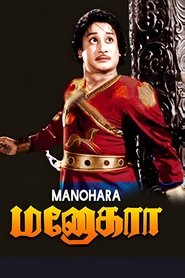 Manohara produced by M Somasundaram The...
Manohara produced by M Somasundaram The...Manohara 1954
Manohara produced by M. Somasundaram. The Sivaji Ganesan-L. V. Prasad production was distinct, becoming a cult classic. Karunanidhi virtually rewrote Mudaliar’s play, introducing interesting changes like the climactic sequence for which he drew inspiration from “Samson and Delilah”, especially the part where the blind Samson pushes the pillars down. Mu. Karunanidhi’s writing was superb with a contemporary touch. His dialogue had punch, satire, wit and humour. Sivaji Ganesan was excellent in his dialogue delivery and P. Kannamba who played the queen mother was equally brilliant. Her line, ‘Poruthathu podhum, pongi ezhu, maganey’, became quite famous.
 Set against the backdrop of World...
Set against the backdrop of World...Parasakthi 1952
Set against the backdrop of World War II, three brothers are separated by war while their sister Kalyani faces immense struggles after being widowed and left destitute. As each sibling endures hardship and societal injustice, their paths cross in unexpected ways, culminating in a dramatic courtroom trial that exposes the harsh realities of their world and sets the stage for a powerful family reunion.
 Vijay a guy with a careless...
Vijay a guy with a careless...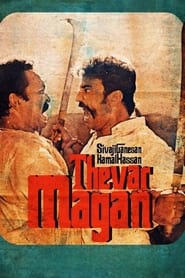 Londoneducated Saktivelu returns to India and...
Londoneducated Saktivelu returns to India and... Thirisoolam is a 1979 Tamil film directed...
Thirisoolam is a 1979 Tamil film directed...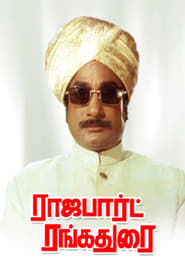 Rangadurai borrows money from Somasundaram to...
Rangadurai borrows money from Somasundaram to...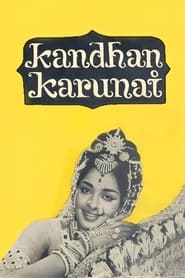 This expansive Hindu epic concerns Lord...
This expansive Hindu epic concerns Lord...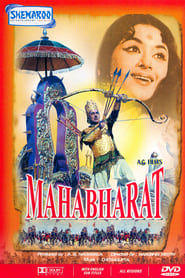 A version of the epic Indian...
A version of the epic Indian...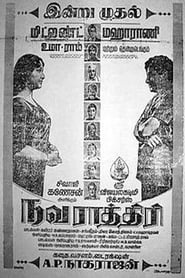 After a fight with her father...
After a fight with her father... Brave and loyal warriorarcher Karna joins...
Brave and loyal warriorarcher Karna joins...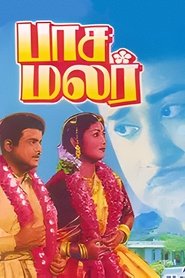 Two siblings Rajasekharan and Radha become...
Two siblings Rajasekharan and Radha become...